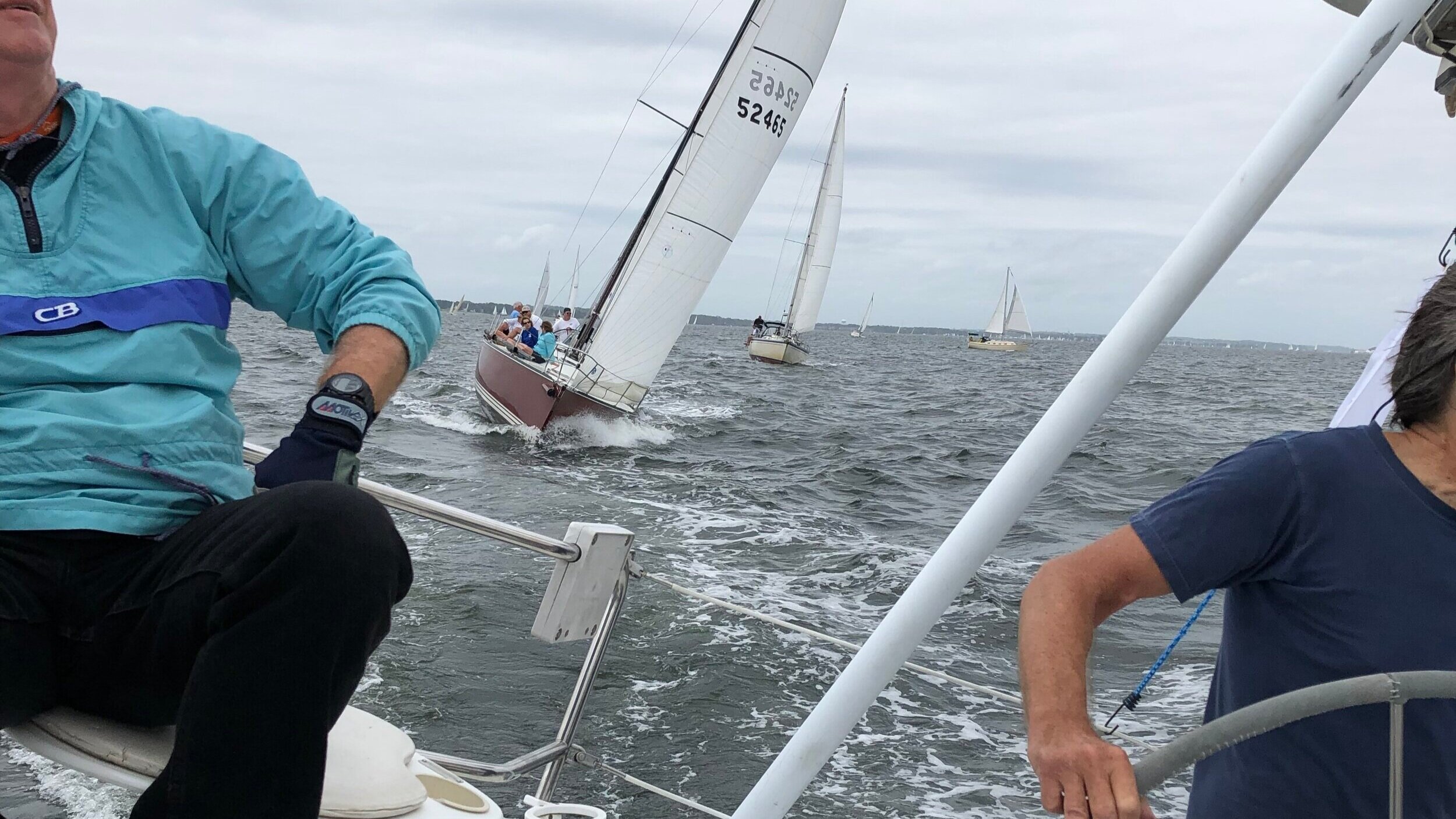
Strategic Thinking & Strategic Action
Fostering strategic thinking and strategic action by organizational leaders since 2007.
Archive
- April 2024
- February 2024
- January 2024
- December 2023
- November 2023
- October 2023
- July 2023
- August 2021
- April 2021
- March 2021
- February 2021
- November 2020
- October 2020
- September 2020
- July 2020
- June 2020
- May 2020
- March 2020
- October 2019
- September 2019
- July 2019
- April 2018
- January 2018
- December 2017
- November 2017
- October 2017
- September 2017
- August 2017
- January 2017
- December 2016
- November 2016
- October 2016
- September 2016
- August 2016
- February 2016
- October 2015
- March 2015
- November 2014
- October 2014
- September 2014
- July 2014
- May 2014
- March 2014
- February 2014
- December 2013
- September 2013
- August 2013
- March 2013
- February 2013
- December 2012
- October 2012
- June 2012
- May 2012
- March 2012
- February 2012
- January 2012
- December 2011
- November 2011
- October 2011
- September 2011
- August 2011
- June 2011
- May 2011
- April 2011
- March 2011
- February 2011
- April 2010
- October 2009
- June 2009
- May 2009
- April 2009
- March 2009
- February 2009
- May 2008
- February 2008
- August 2007
-
Action-oriented bias
- Nov 17, 2017 Trump trap: Action-oriented bias Nov 17, 2017
-
Approach-avoidance
- Sep 21, 2016 Approach or avoid? Sep 21, 2016
-
Bell curve bias
- Mar 28, 2020 We are biased by the bell curve Mar 28, 2020
-
Choice
- Oct 5, 2016 Managing choice Oct 5, 2016
-
Coaching
- Jan 22, 2024 Coaching and change Jan 22, 2024
- Apr 1, 2021 Let’s not be complacent about our ignorance! Apr 1, 2021
- Mar 10, 2021 So much can go wrong. Here’s how to make it go right. Mar 10, 2021
- Mar 10, 2021 Why settle? Go for the gold! Mar 10, 2021
- Mar 10, 2021 It's time for spring training. Are you ready to play on the A Team? Mar 10, 2021
- May 5, 2020 Avoid “the big fail”! Join a group. May 5, 2020
-
Consensus
- Dec 6, 2016 No consensus for consensus Dec 6, 2016
-
Decision biases cases
- Oct 19, 2020 Short-sighted thinking: The case of the “hot new smartphone” Oct 19, 2020
- Sep 10, 2020 Changing our thinking to feel better. Yes, we do that! Sep 10, 2020
- Oct 24, 2019 Remember, history is written by the survivors Oct 24, 2019
- Oct 22, 2019 Beliefs about a group matter Oct 22, 2019
- Oct 15, 2019 Not knowing we don’t know Oct 15, 2019
- Sep 19, 2017 Case 12: Not missing the opportunity to lose billions Sep 19, 2017
- Aug 29, 2017 Case 11: Getting bitten by not seeing it Aug 29, 2017
- Aug 29, 2017 Case 10: When what worked didn’t work Aug 29, 2017
- Aug 28, 2017 Case 9: The climbers who perished by succeeding Aug 28, 2017
- Aug 28, 2017 Case 8: No accounting for incompetence Aug 28, 2017
- Aug 16, 2017 Case 7: Blind or incompetent? Perhaps both… Aug 16, 2017
- Aug 16, 2017 Case 6: Seeing what he wanted to see Aug 16, 2017
- Aug 13, 2017 Case 5: Getting burned by past successes Aug 13, 2017
- Aug 2, 2017 Case 4: I’m the boss, so I am right! Aug 2, 2017
- Aug 2, 2017 Case 3: The experts were wrong Aug 2, 2017
- Aug 2, 2017 Case 2: The battle that didn’t go as expected Aug 2, 2017
- Dec 12, 2016 Failure without facilitation: The French Canal Disaster Dec 12, 2016
- Oct 26, 2015 Decision traps, flaws and fallacies: Learn from my unexpected big decision Oct 26, 2015
-
Decision making
- Jan 5, 2024 What’s your magic number? Jan 5, 2024
- Oct 9, 2023 AI revisited: Will it ever make perfect decisions? Oct 9, 2023
- Sep 4, 2019 “The instant of decision is madness” Sep 4, 2019
- Apr 23, 2018 Despite our growing ignorance, we must decide Apr 23, 2018
- Apr 12, 2018 Can “Big Data” deliver “the right decision”? Apr 12, 2018
- Jan 18, 2018 The worst accident: “We’re going!” Jan 18, 2018
- Mar 8, 2015 10 surprising mental traps: Why we make bad decisions Mar 8, 2015
- Mar 10, 2014 Often wrong but never in doubt Mar 10, 2014
-
Decision making biases
- Mar 10, 2021 So much can go wrong. Here’s how to make it go right. Mar 10, 2021
-
Evidence
- Dec 16, 2016 Misuse of evidence can zap your strategy Dec 16, 2016
-
Evolution
- Aug 6, 2016 Smart phones on the savannah Aug 6, 2016
-
Gratitude
- Oct 25, 2017 Thank you for our connection Oct 25, 2017
-
Group decisions
- Nov 15, 2016 #2 error: Not using the group advantage Nov 15, 2016
- Oct 22, 2015 Open up your thinking: Make better decisions in a group process Oct 22, 2015
-
Leadership
- Nov 14, 2016 #1 error: The leader problem Nov 14, 2016
- Feb 1, 2016 Leaders who mislead: A tale of two movies Feb 1, 2016
-
Pre-mortem
- Sep 12, 2016 Thinking “as if” Sep 12, 2016
-
Risk
- Jun 9, 2020 The Black Swan and us Jun 9, 2020
- Jan 10, 2017 The risk of ignoring risk Jan 10, 2017
- Oct 14, 2016 Risk and regret Oct 14, 2016
-
Strategic planning
- Apr 10, 2024 Bridge the strategy gap Apr 10, 2024
- Feb 23, 2024 Don't waste your time planning, unless... Feb 23, 2024
- Dec 18, 2023 The secret sauce of successful plan implementation Dec 18, 2023
- Nov 20, 2023 How to build commitment to change, revisited Nov 20, 2023
- Oct 3, 2023 Success Starts With a Big Vision Oct 3, 2023
- Aug 24, 2021 Sometimes you get what you need Aug 24, 2021
- Feb 25, 2021 Do you measure up? Feb 25, 2021
- Jul 28, 2020 Forget business as usual Jul 28, 2020
- Oct 9, 2014 What’s driving your organization? Oct 9, 2014
- Feb 20, 2014 This is not an infomercial Feb 20, 2014
- Feb 11, 2014 The Big Fail Feb 11, 2014
- Mar 12, 2013 Parsimony and planning Mar 12, 2013
-
Strategic thinking
- Feb 27, 2024 Desirable difficulties Feb 27, 2024
- Jan 13, 2024 Business model question: Produce or provide? Jan 13, 2024
- Jan 5, 2024 What’s your magic number? Jan 5, 2024
- Jul 5, 2023 Think wide to succeed: How will you compete? Jul 5, 2023
- Mar 25, 2014 Flight 370 and strategic thinking Mar 25, 2014
-
Strategy
- Apr 8, 2024 What do your customers expect? Apr 8, 2024
- Nov 13, 2023 Demand a great brand! Nov 13, 2023
- Oct 31, 2017 Why not plan to be great, like Elon Musk? Oct 31, 2017
-
Success
- Jul 24, 2019 22 principles I have learned from being an athlete Jul 24, 2019
-
Sunk cost fallacy
- Mar 21, 2015 Sunk cost fallacy: Throwing good money after bad Mar 21, 2015

Do you measure up?
We have a problem. We are not wired well for the sustained, organized, separate effort needed to change and grow, to implement our plans, be they strategic or annual.
What I have uncovered on my now six-year deep dive into why we make big decisions poorly and what to do about that huge issue starkly highlights what derails our best intentions in implementing our plans.


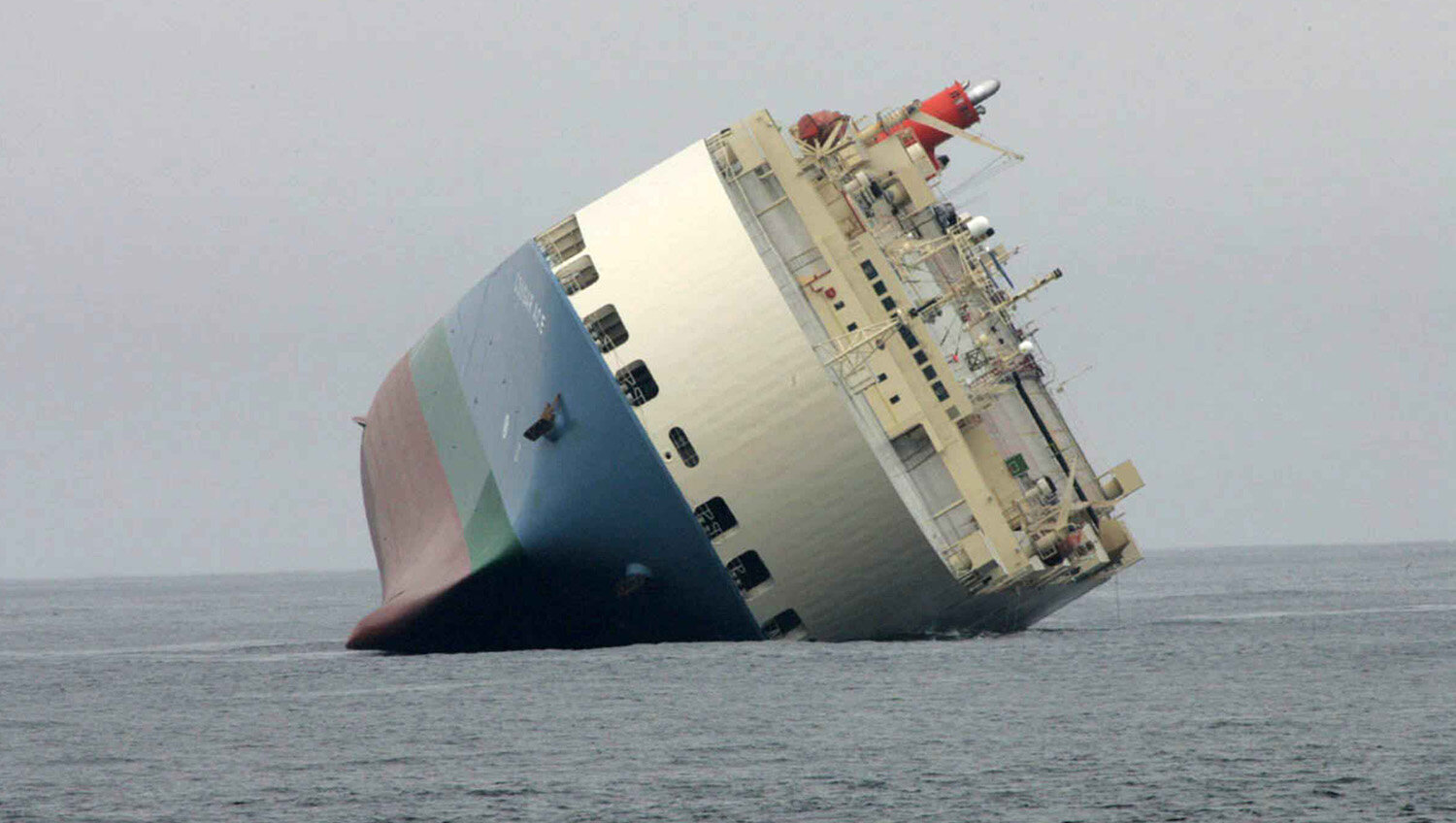


Short-sighted thinking: The case of the “hot new smartphone”
Here’s a story that shows what can happen when we don’t look beyond the expected and familiar, what relates to us, and what confirms our thoughts.

Changing our thinking to feel better. Yes, we do that!
In the 1980s, I had encounters with two bank CEOs whom power and money biased to make very bad decisions that hurt themselves, their employees, customers and the U.S. economy. Both later tangled with the law for their misdeeds.
With that background, you will understand why I am astonished about a much more recent and much larger case of banking misconduct, for which I believe no one has yet to serve time in custody. This case amplifies the decision-making errors I saw in the lead-up to the savings and loan crisis.
In February 2020, Wells Fargo, the nation’s fourth largest commercial bank, stunningly admitted that it had assessed customers millions of dollars in fees as employees falsified records, forged signatures and misused customers’ personal information to open fake accounts to meet unrealistic sales goals. The bank said its leaders knew of the misbehavior, including “violations of federal criminal law,” as early as 2002 but did not stop it until 2016.

Forget business as usual
With the realization that the storm we thought we are weathering is turning out to be a lasting, hard change in the business climate, a shorter “fix” is likely only to be the start of what the typical business will need to do to be really successful going forward.
I am suggesting that we go beyond stop-gap and short-term measures. I am suggesting that each of us take our business back to fundamentals, rethink it in light of where we are and likely are headed. I am suggesting that we address the new challenges and opportunities brought on by change and then build that reimagined business for greater success.
Here’s a six-step process for resetting your business in a time of great change.

The Black Swan and us
We are victims of change. Huge change. Change that some tried to predict but that most of the rest of us did not see coming. Change that fits at least some of the characteristics of a Black Swan.

Avoid “the big fail”! Join a group.
I offer group business coaching. The results that my group coaching clients are getting amaze me. Bang for the buck and for the time required, group coaching is a winner for my clients, as well as for me. Here's the case for joining a monthly coaching and accountability group such as what I am now offering. It will help you avoid "the big fail" (it is described in the article), and will support you in achieving your goals. You get brainstorming, education, peer accountability and support in a group setting. This support is especially important in helping you succeed in this radically changed business environment and in sharpening your business and personal skills.

We are biased by the bell curve
We are biased by the bell curve in many domains of our decision making. For example: In investing, we discount the possibility of rare and unpredictable large deviations in stock prices. In marketing, we want to believe that “there is a meaningful ‘average consumer’ that can be used to scale products and operations around.” We are asked to rate Uber drivers, Airbnbs and Yelp establishments on a 1-5 bell curve scale, and yet the ratings cluster above 4. Any person or place rated lower, in essence, fails. The implication of our tendency to assume that things are distributed normally is that we have a huge flaw in how we interpret what we see and how we make decisions. Better to step back and see what things look like without imposing the bell curve from the get-go.
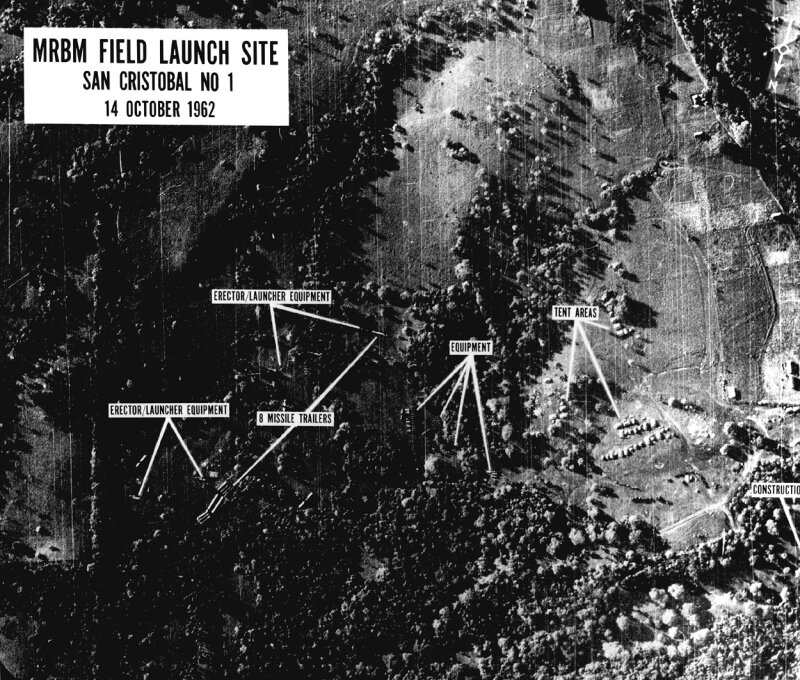
Remember, history is written by the survivors
We are urged to learn from history. But what if the history is biased? Here’s a case showing how slanted history can lead to bad decisions. In the Cuban Missile Crisis, U.S. advisors were mislead by the fallacy of silent evidence, that is, not seeing the full story when looking at history, just seeing the rosier parts of the process reported by the “winners.” U.S. policy was tragically misguided because of survivorship bias, that is, concentrating on and giving undue credit to the people, things or interpretations that "survived" the process and inadvertently overlooking those that didn't because of their invisibility.

Beliefs about a group matter
Here’s a story about what can go wrong when we hold beliefs about a group and attribute these beliefs to the members of the group. The Battle of Little Bighorn, also called Custer's Last Stand, took place in Montana Territory on June 25-26, 1876, between the Lakota, Northern Cheyenne, and Arapaho tribes and the 7th Cavalry Regiment of the U.S. Army. The Battle of the Little Bighorn was a stunning victory for the Native Americans. The 7th Cavalry, casualties numbered 268 dead, including Custer, and 55 wounded. How Custer viewed the Indians opposing him led him astray.
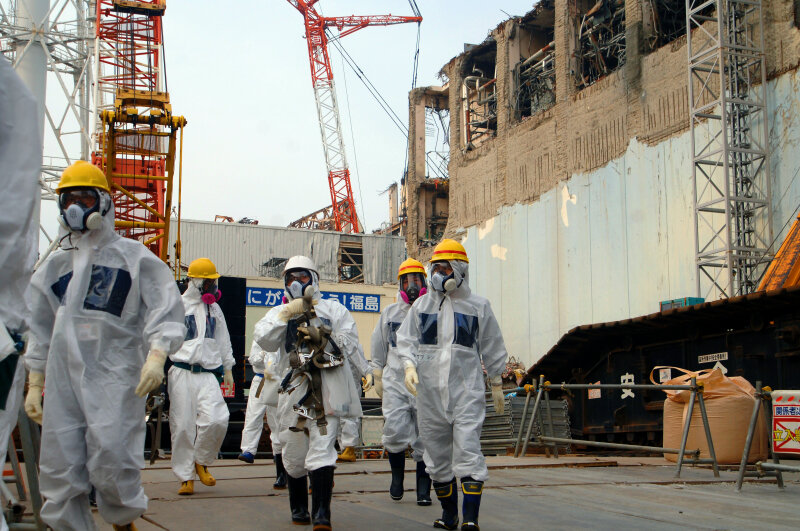
Not knowing we don’t know
To lack relevant knowledge without realizing it can have disastrous consequences. Consider, for example, the underestimation of the risk of a nuclear accident when constructing the Fukushima Daiichi Nuclear Power Plant power plant in Japan. The Fukushima Daiichi Nuclear Power Plant disaster offers a stark example of what can go wrong when we rely on a small and biased sample of data.
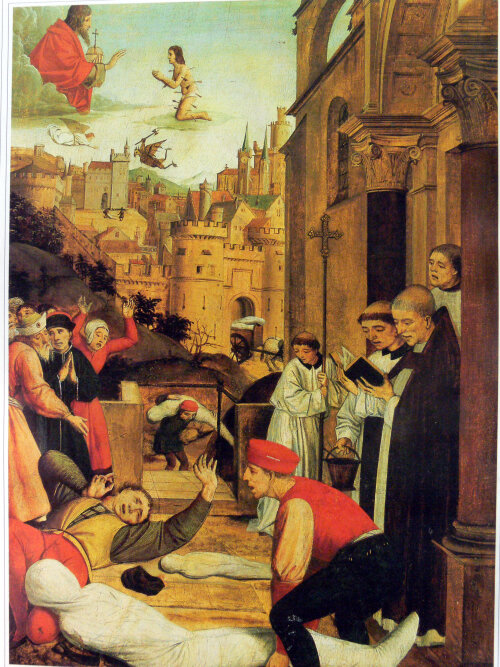
“The instant of decision is madness”
We are faced with “undecidability” and yet have to make a leap of faith and decide. Furthermore, we are overconfident in what we think we know and we can never know enough, We are fooling ourselves if we believe there are clear decision options and justifications ahead of the actual decision. We must act and then we will see what comes next and our next decision and action.
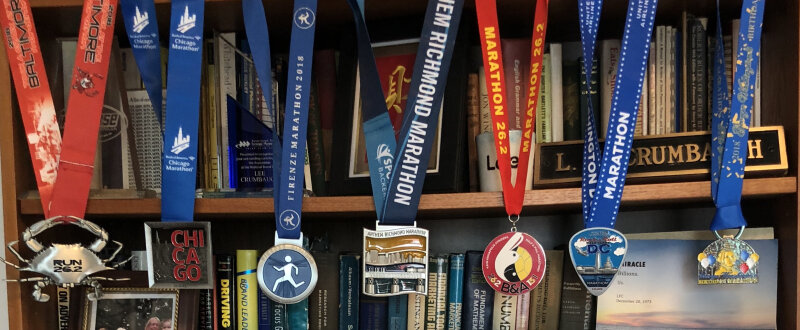
22 principles I have learned from being an athlete
This post speaks to what I see as the strategies,habits and actions taken over time that lead to improvement and success. In essence, I believe that what it takes for long-term success in sport applies equally well to success in business and other walks of life. Over 57 years of athletics - running, triathlon, biking, swimming, spin classes, abs workouts, speed skating, golf, tennis and even some sailing - wisdom accrues. As a strategy consultant and business coach, I constantly find myself applying what I have learned from being an athlete to my work improving organizations and coaching decision makers. Here are 22 principles that have stuck with me as a result of decades of training, competing and coaching.

Despite our growing ignorance, we must decide
We are unable to fully access the information we need to make big decisions My mother encouraged me to read and learn. But she cautioned me, “The more you learn the less you will know.” That was her way of saying that learning opens whole domains about which we were previously ignorant and shows us how much more there is to learn. That thought leads to the necessary understanding that our decision making is dependent on knowledge we do not have and can never completely know. Because we are faced tidal wave of data and knowledge that we never can know and access, we as decision makers must make our big decisions without possessing all the existing knowledge that could make our decisions better. “Unknowability” is an unavoidable characteristic of real-world decision-making.

Can “Big Data” deliver “the right decision”?
One idea for maximizing the gain we get from decisions is to use machines to help us make them or even have machines make the big decisions for us. But can an algorithm be perfected to always yield “the right decision”? An algorithm is a process or set of rules used in calculations or problem-solving. “Artificial intelligence” (AI) algorithms which process “Big Data” use logic rules and mathematics to solve problems and produce answers. These algorithms engage in “machine learning” or “deep learning.” Instead of a programmer writing the commands to solve a problem, the program generates its own algorithm based on example or training data and a desired output.. But it is clear that we cannot reliably leave or ever expect to leave our big decisions to “Big Data” and artificial intelligence. We humans will continue to need to make the big decisions, with whatever outside aid we can muster and trust.

The worst accident: “We’re going!”
On March 27, 1977, two Boeing 747 passenger jets, KLM Flight 4805 and Pan Am Flight 1736, collided on the runway at Los Rodeos Airport on the Spanish island of Tenerife. Of the 644 people aboard the two 747s, 583 were killed and only 61 survived. This was the worst accident in aviation history. The massive investigation of and subsequent reports on the Tenerife airport disaster offer deep insight into what happened and what went wrong. As a result, aviation authorities and airlines worldwide changed procedures. But they are insufficient to explain why the KLM 747 collided with the Pan Am 747. Explaining the “why” of the disaster leads us to our great concern, bad decisions and what to do to avoid them when making a good decision is imperative for a mission-critical outcome.

Trump trap: Epistemic arrogance
Donald Trump displays continuing ignorance in so many domains despite abundant evidence of the truth. A major decision-making trap that he exhibits is epistemic arrogance, in which we think we know more than we really do know. As our learning increases, we grow even more confident in our knowledge and tend to ignore our ignorance and what we still do not know. The prevalence of overconfidence appears to pose a serious obstacle to effective learning, problem solving and decision making.
